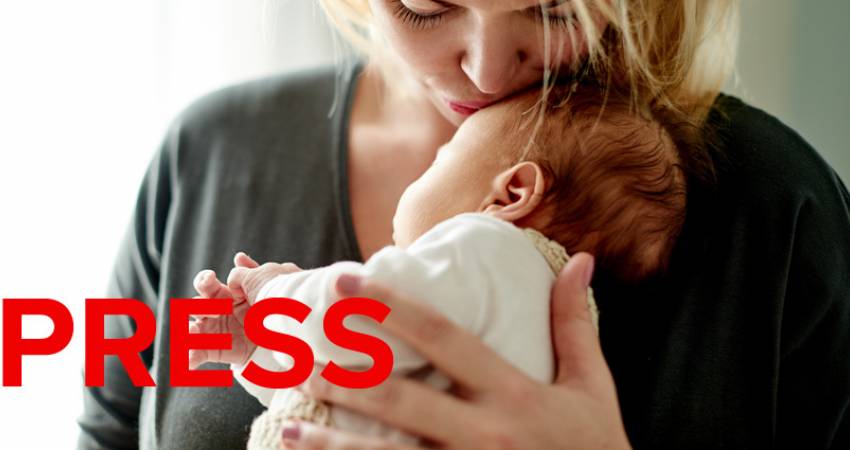
PR: Calls to Cancel Workshop
Taxpayer-funded centre should cancel workshop
Date: 18 March 2010
The Life Institute has said that a “disturbing and exploitative” DIY-Euthanasia workshop should not be allowed to take place in a tax-payer funded community centre. The workshop – which explains to elderly and depressed people how to commit suicide - is scheduled to take place in the Macro building in Dublin 7 tomorrow. “This workshop is deeply disturbing, and the vast majority of people would strongly object to their taxes being used to give a platform to this organization, and to the counsel of despair they offer," said spokeswoman Niamh Ui Bhriain.
It is the third venue for the proposed event: bookings in Outhouse in Capel Street and Buswells Hotel were cancelled following an outcry raised when the Life Institute raised alerts over the past week.
Australian campaigner Dr Philip Nitschke, is hosting this event. Nitschke heads up Australian organization Exit International which assists people in committing suicide, usually by taking a lethal dose of a veterinary medicine, Nembutal.
The Life Institute has contacted Dublin City Council and Pobal who fund the Macro centre asking that the booking be cancelled. They also contacted the centre and asked that the use of the room be withdrawn. “There is scarcely a family in this country which hasn’t been touched by suicide or depression,” said Niamh Uí Bhriain of the Life Institute. “I would respectfully request that this taxpayer-funded venue be withdrawn from use by this most objectionable organisation, for what is, most likely, an illegal workshop.
“This exploitative and disturbing ‘workshop’ comes at a time when there is a huge push by pro-euthanasia activists worldwide to introduce the legal killing of the elderly, the sick and the vulnerable,” said Ms Uí Bhriain. “Philip Nitschke is a most controversial figure, and he stands accused of exploiting people with mental illness who commit suicide under his guidance when what they need is professional help and understanding. This workshop is deeply disturbing, and the vast majority of people would strongly object to their taxes being used to give a platform to this organization."
Ms Ui Bhriain warned that the so-called “right to die, would all too quickly become a duty to die, with terrible consequences for elderly and sick patients who are even now being described as a ‘waste of resources’ by UK euthanasia advocates such as Baroness Warnock.”
An article from the Australian Herald Sun (19/02/2010) reveals that when euthanasia was briefly legal in the Northern Territory, Nitschke was then the doctor of seven people who had applied for permission to die.
Columnist Andrew Bolt wrote “You’d have sworn they were in great pain or days from death, but I later read the truth in Nitschke’s own account in an article he co-wrote for The Lancet. In fact, none of the seven had severe pain, only two were married, and a co-author of The Lancet piece, palliative care expert Prof David Kissane, believes some just needed better medical and psychiatric care. The saddest example is Martha Alfonso-Bowes, who’d announced she had bowel cancer and “there is no hope for me”. In her suicide note, she claimed “I have maybe a few months to live”.
Only in The Lancet did he publicly finally reveal Alfonso-Bowes actually knew surgery could cure her, and her “prognosis was good”. Her real sickness was of the heart. She was 68 and divorced. Her daughter died young, and now she was estranged from her son. “
“We’re seeing a disturbing trend here,” said Ms Uí Bhriain. “The push to kill the elderly, the sick and the vulnerable is led by people who advocate a twisted form of utilitarianism; who think that caring for the terminally ill or the aged is a waste of resources. We need to speak out to ensure this taxpayer-funded venue is withdrawn.”
ENDS
Featured
- How campaigners dropped the ‘fatal’ from ‘fatal foetal abnormalities’ in push for abortion
- RTÉ Investigates turns a blind eye to 38,000 babies aborted and other grim realities
- After Limerick case, medics write to every TD to warn ultrasounds must be provided before abortion
- Irish MEPs join EU lawmakers in voting to enshrine abortion as a fundamental right
- Every TD and Senator contacted re Limerick abortion scandal
- Stop the Cover-Up or Women Will Die
- Horror in Prague: A hospital aborted the baby of the wrong mother
- Why are the media ignoring the abortion scandal that almost killed a woman?
- Limerick: woman who was prescribed abortion pills had life-threatening ectopic pregnancy
- Rally for Life 2024
- Exposing the Numbers
- Alive and Kicking: Your baby before 12 weeks
You can make a difference.
DONATE TODAY